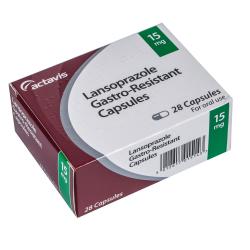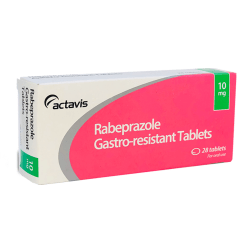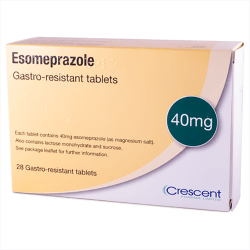- Private & confidential service
- Genuine medication
- All-inclusive service - No hidden fees
- Next day delivery
- Acid Reflux
Acid Reflux: start your consultation
- 1. Answer the online medical questions
- This helps our doctors to decide which treatment is safe for you.
- 2. Select your treatment
- You will see a list of recommended treatments. You can select the one you prefer.
- 3. Checkout and delivery
- Once you’ve completed the checkout, our doctors will review your answers. If all is safe, you will receive your treatment tomorrow.

- Reduces stomach acid
- Effective within an hour
- Offers symptomatic relief

- Easy to take tablet daily
- Reduces stomach acid
- Offers symptomatic relief

- Alleviates symptoms of acid reflux
- Effective treatment of heartburn
- Convenient to take

- Reduces stomach acid
- Can be used long-term
- Offers symptomatic relief

- Reduces stomach acid
- Helps you sleep
- Offers symptomatic relief

- Same active ingredient as Nexium
- Reduces stomach acid
- Targets acid reflux symptoms
Acid Reflux
Heartburn (Acid Reflux) is a common condition caused by stomach acid that travels up to the throat causing a burning sensation. Whilst it is not deemed as a serious condition, it can cause discomfort and there are treatments available. If you're experiencing heartburn frequently, it's important to visit your doctor.
Topics
What is acid reflux and heartburn?
Though often used interchangeably, acid reflux and heartburn are two different conditions.
Acid reflux is a condition where stomach acid travels up towards the throat. If the condition is severe or frequent, it is known as gastro-oesophageal reflux disease (GORD).

Heartburn is a symptom of acid reflux. Those with heartburn experience a burning or tightening sensation in the chest, usually just behind the breastbone. This sensation can range from mild to severe. However, it is generally made worse by lying down or bending over.
Heartburn is not connected with the heart, despite what its name suggests. Acid reflux and heartburn occur in the oesophagus, which is part of the digestive system and is the tube that carries food from the mouth to the stomach.
Occasional heartburn is no cause for concern and is a widespread ailment. However, heartburn that occurs more than once a week, or affects your daily routine, could be a symptom of a more serious condition that requires medical care.
You should seek medical advice if you experience severe chest pain or pressure. If this occurs in combination with other symptoms such as arm or jaw pain, nausea and/or vomiting, or difficulty breathing, see a doctor immediately as this may be a problem with your heart.
What causes acid reflux and heartburn?
Acid reflux occurs when stomach acid fills the oesophagus, which is usually used for carrying food from your mouth to your stomach.
When a healthy individual swallows, the band of muscles at the bottom of the oesophagus - the lower oesophageal sphincter - relaxes. This allows food and liquid to pass through easily.
After swallowing, the muscle tightens again, and the stomach releases strong acids to break down the food.
If you have acid reflux, the lower oesophageal sphincter might be weak or relax incorrectly. Stomach acid can then escape back into your oesophagus. The acid can damage this tube and subsequently cause a burning sensation (heartburn).
The reason why the oesophagus weakens and acid reflux occurs is not always clear. However, there are several risk factors for acid reflux and heartburn. These include:
- coffee, alcohol and carbonated drinks
- onions, citrus products, tomato products and peppermint
- fatty or spicy foods
- being overweight
- smoking
- being pregnant
- stress and anxiety
- medications, especially anti-inflammatories
- other conditions like a hiatus hernia (where part of the stomach shifts into the chest)
Young children often experience acid reflux. They have small stomachs that are less able to tolerate being full.
Pregnant women are also prone to experiencing acid reflux and heartburn, usually after the first trimester. Pregnancy increases progesterone levels, which relax the lower oesophagus. The increased pressure from a growing uterus is also a contributing factor.
If you experience heartburn regularly and it is quite severe, you may have GORD. This sometimes requires prescription medication, surgery, or other procedures to treat effectively. It is best to seek medical advice quickly as GORD can seriously damage your oesophagus.
What are the symptoms of acid reflux and heartburn?
Heartburn is the symptom of acid reflux; it's typically a burning sensation that occurs in the middle of the chest. However, it can present slightly differently.
You may experience a burning sensation that moves up the neck or throat or general discomfort behind the breastbone. The stomach acid may also leave an unpleasant sour or bitter taste in your mouth.
Other symptoms of acid reflux and heartburn include:
- a persistent cough or hiccups
- bad breath
- hoarse voice
- bloated stomach and nausea
If you have GORD, the chronic form of acid reflux, you may also experience:
- damage to tooth enamel caused by excess acid
- regurgitation, or feeling like the stomach contents have returned to the throat or mouth
- chest pain
- a persistent dry cough or asthma
- trouble swallowing
Symptoms of acid reflux and heartburn tend to worsen after eating. Lying down and bending over may also exacerbate these symptoms. Many of those who experience heartburn do so at night.
If your acid reflux is severe, you could experience some additional complications. This is because stomach acid can severely damage the oesophagus. Consequently, you may experience:
- oesophagitis
- ulcers
- difficulty or pain when swallowing
- oesophageal spasm
- increased risk of cancer in the oesophagus
How to treat acid reflux and heartburn?
It is possible to ease the discomfort of acid reflux and heartburn with natural remedies and lifestyle changes. Try avoiding substances and situations that cause heartburn. It is also a good idea to establish if there's anything that triggers heartburn for you specifically.
Try to eat smaller, more frequent meals at least 3-4 hours before bed. Wearing clothes that fit loosely around your waist may also help.
When lying down, ensure that your chest and head are above your waist level. This will help, as it will mean the stomach acid cannot rise towards your throat. Do this by raising your mattress by 10-20cm or using an additional pillow.

If your symptoms persist, consider over-the-counter remedies.
Antacids can help ease the symptoms of acid reflux and heartburn. They neutralise stomach acid and provide quick relief. However, they cannot heal the damage done to the oesophagus.
It is best to take antacids with food, or soon after eating, as this is when heartburn is likely to occur. The effects may also last longer if taken with food.
You may also try H2 receptor antagonists (H2RAs). They reduce stomach acid, so it cannot flow as easily into the oesophagus. They do not act as quickly as antacids but may provide longer relief.
You can sometimes take H2RAs in combination with antacids, but check the label for both medications before you do so.
Proton pump inhibitors also reduce stomach acid. They tend to work longer than H2 blockers and help heal the stomach lining and the oesophagus. HealthExpress sells several proton pump inhibitors. If you are considering this as a treatment, you should consult your doctor. You can then fill out our online consultation and (if approved by our doctors) order treatment from us.
The acid reflux treatments we offer include:
- esomeprazole
- lansoprazole
- omeprazole
- pantoprazole
- rabeprazole
- nexium
If your lifestyle changes and over-the-counter medicines do not relieve the symptoms, it is advised to consult a GP. This is particularly true if you have had heartburn for more than three weeks and experience other symptoms such as nausea or rapid weight loss. You may suffer from a more serious underlying condition requiring more potent medication or surgery.
medical form
medication
prescription
from pharmacy

